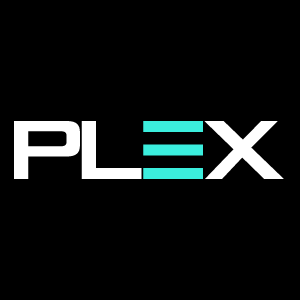Simply put, ‘capacity planning’ is the process businesses use to make decisions on how much capacity is needed to meet demand. Along the way, companies aggregate historical data, produce forecasts, and interpret market and sales data to make determinations that drive resources such as equipment, labor, and inventory. But even in ideal economic conditions, capacity planning is still a challenging task best accomplished with advanced planning software.
How then do businesses manage in the era of COVID-19? How do they understand and analyze data to plan their capacity in a state of continuing uncertainty to ensure optimal performance? Because if previous disruptions were problematic, then today’s level of unpredictability can be a matter of survival. And the decision-making and planning required to determine accurate capacity today isn’t just required to stay ahead of the competition. In many cases, it is a basic requirement in order to remain solvent.
Meeting the Challenges
As companies begin to find their footing in the “new normal”, indications on how they will proceed are beginning to emerge. A recent analysis by DeLoitte looked at the 2020 midyear landscape and found several trends emerging, all of which will drive the need for more accurate capacity planning:
- Companies Will Simplify Operations While Diversifying Offerings – This may include simplifying operations to provide strong support for core products while also adding digital and other value-added services for short-term revenue generation.
- Companies will Diversify Supply Chains and Implement More Digital Network Solutions – By re-shoring certain supply chain aspects and implementing aggressive use of software and digital tools, companies can gain a stronger foothold over their supply chain. This in turn will make them more agile in terms of capacity planning. As a result, lead times and less supplier uncertainty can pave the way to faster and more accurate capacity adjustments.
- Companies Will Incorporate New Safety and PPE Procedure’s into Their Operations – As companies look at flexible crew scheduling and physical distancing initiatives, this will need to be included in capacity calculations to reflect the proper safety precautions. One study by McKinsey indicates that the very layout of manufacturing operations will need to be altered to address the crisis.
In addition to these factors, the “new normal” also includes planning and management from a distance for those who can work remotely. This sea change in working practices requires a strong commitment to software systems that can accurately analyze the data and render capacity solutions that are flexible, agile, and, that allow for this re-imagined reality.
Using Software to Mitigate Uncertainty
If the past environment was challenging without software, the introduction of new variables that impact capacity planning will make it close to impossible to ignore. A look at Price Waterhouse Cooper’s suggested strategy for working through the crisis focuses on four steps to navigate the storms:
- Disruption – Companies coordinate for action and mobilize.
- Recovery – Re-balance the business and recover with agility.
- Competitive Advantage – Capitalizing on the situation to move ahead of the competition.
- Resilience – Embrace and manage new capabilities.
Key to the suggestions for recovery is the mandate to maintain or accelerate digital technology investment. As the above suggestions indicate, all the steps for recovery will have an impact on capacity planning. So much so that both PWC and DeLoitte point out the need for technology’s role in the form of software and planning capabilities.
For many businesses, COVID-19 has become an existential crisis. Manufacturing operations and supply chains were already more complex pre-COVID. In retrospect, these processes were already beyond well the bounds of human capacity for analysis, which could determine appropriate and agile response to the needs required to survive.
By taking advantage of capacity planning software, companies can enable multiple “what-if” scenarios to accommodate capacity constraints and adjust bottlenecks on the fly. Software also allows decision-makers the ability to translate the new demand plan into labor, machine hours and, material requirements to provide more accurate capacity requirements. And it can use advanced algorithms to align demand and supply with financial objectives in an ongoing era of uncertainty.
Taking advantage of software such as production and capacity planning software by Plex/DemandCaster Supply Chain Planning can help streamline and automate processes. If you want more certainty that your business has the production resources and adequate capacity to be fully agile, competitive, and profitable in the “new normal” then this is the direction to take.
Related Articles
